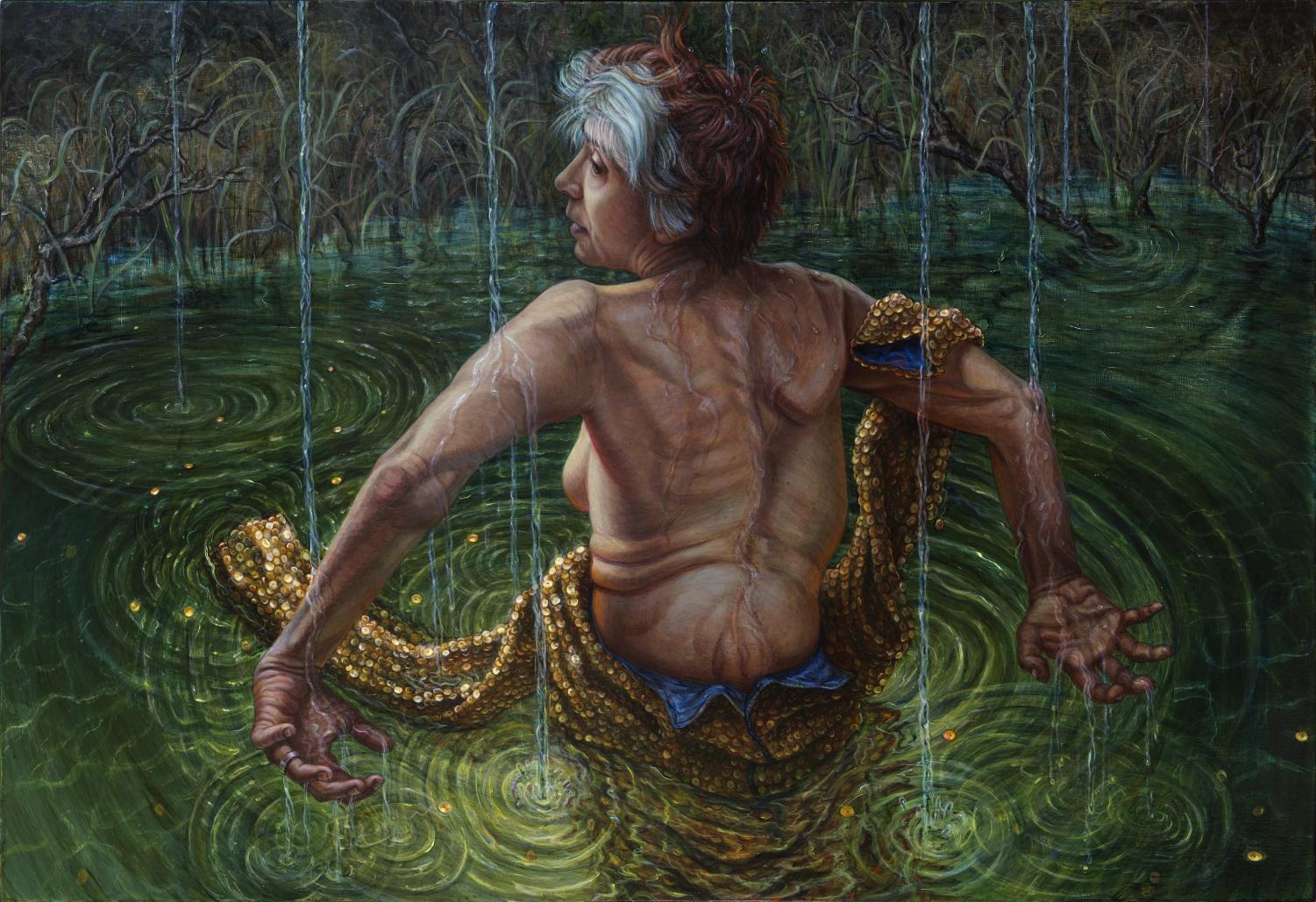“Golem Girl”
Northwestern instructor and artist Riva Lehrer talks recent book and art success
March 10, 2021
The Monthly
Riva Lehrer has spent her entire career creating art of people with disabilities or body differences, despite receiving constant rejections from galleries.
Lehrer, an art instructor at both Northwestern and the School of the Art Institute of Chicago, works with the “socially challenged body,” anyone whose body is deemed unacceptable by outside forces, whether that be people with disabilities, people of color or queer people who are threatened because of how they present themselves.
For the last six years, Lehrer has worked on her memoir, “Golem Girl,” which tells her story of growing up with spina bifida. The book won the Barbellion Prize for ill and disabled voices in writing and is a National Book Critics Circle Award finalist.
In her book, Lehrer discusses growing up in Cincinnati in the 1960s, attending a school for people with disabilities and her frequent hospitalizations. Lehrer said the book attempts to explain what living with a disability is like through her own experiences.
“I was trying to talk about my history and a whole community’s history through stories and through their portraits,” Lehrer said. “The biggest realization that I had was my life is completely constructed of other people’s lives.”
In many ways, “Golem Girl” is a culmination of the work Lehrer has been doing throughout her entire career. She said her concerns about the influence one’s body can have on their life are similarly expressed as a writer, artist and teacher.
Department Chair at SAIC Michelle Grabner has worked with Lehrer for over a decade. She said Lehrer is a “superhero” who thinks broadly about representation in her artwork and teaching.
“She’s dealing with disability culture and how we as a culture deal with different bodies and desires, and that by nature is political,” Grabner said. “What makes her such a good teacher is she’s able to see how differences can stimulate and protract the imagination.”
Grabner said reading “Golem Girl” has allowed her to learn about disability history and how people think of themselves.
Though her work is currently displayed at the Zolla/Lieberman Gallery, Lehrer said she has received rejections from other galleries and museums.
“Almost every other gallery in Chicago said that they didn’t think they could sell my work because of what I depicted,” Lehrer said.
Since she first started her career, Lehrer said she has seen little improvement in the arts community’s acceptance of depictions of people with disabilities.
Nevertheless, she remains hopeful for the future.
“As any one of us becomes successful, it opens the door for the next person,” she said.
Brian Gillham, the director of Zolla/Lieberman Gallery, echoed Lehrer’s sentiments and said many galleries wouldn’t accept Lehrer’s art because it is too “niche.”
Gillham was inspired by Lehrer’s ability to raise awareness about the stigma around disabilities and make her subjects feel comfortable. He said the gallery decided to work with Lehrer because of her backstory and her ability to educate people on disability culture, something that has been underrepresented in the arts community thus far.
“With her ability as an artist, she’s able to capture the subject beautifully without it being exploitative,” Gillham said. “The romantic side of art is not just something that looks beautiful, it’s also about learning something you didn’t know before and that’s something Riva has been able to capture with her work.”
Lehrer said her work shows younger generations of people with disabilities a world of opportunities, from art to writing.
Her advice to both able-bodied and people with disabilities is to “be brave” and find mentors — there is still a lot of work to be done and anyone has the capability to do it.
“Don’t hold back, the world needs you. There are people in every field now who can guide you and help you develop your ideas,” Lehrer said. “Sometimes you have to go looking but don’t be discouraged and don’t let people tell you it’s not worth doing.”
Read more from the March edition of The Monthly here.
Email: rebeccaaizin2023@u.northwestern.edu
Twitter: @rebecca_aizin
Related Stories:
— How art helps sustain mental wellbeing during COVID-19
— Northwestern alumna and Illinois poet laureate Angela Jackson discusses writing career

